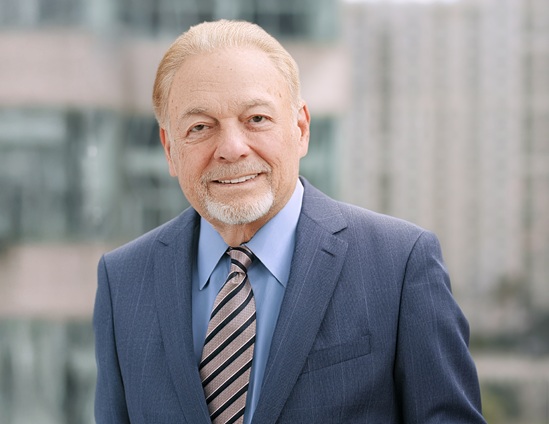A decade ago this Sunday, a court decision was handed down that changed the course of American and world history; it also ended the most extraordinary case of my legal career. The U.S. Supreme Court ruled against my client Vice President Al Gore in his bid to recount disputed Florida votes, sealing the 2000 presidential election for George W. Bush.
Much has been said and written about the election and the ruling, but I would like to focus on one aspect of the recount that has thus far been untold. Namely, that Gore insisted - in the midst of that difficult and highly controversial court dispute - that his lawyers protect the standing and independence of America's court system.
You cannot question the integrity of a court or its judges, the vice president told his team.
As high as the stakes were, Gore recognized that undercutting the third branch of government would cause serious and devastating damage to the U.S. justice system. Watching the appeals process, it would have been easy to react adversely. But we were playing a key role in protecting and respecting American rule of law - losing that would have been the worst loss of all.
As president of the organization that serves as the voice of the American legal profession, I now spend every day actively engaged in and concerned about protecting our courts. I've been thinking more than ever about the former vice president's underappreciated respect for our courts in light of election results like those in Iowa.
In Iowa, it appears three Supreme Court justices were tossed out for joining a unanimous ruling that a law barring marriage equality for gay and lesbian couples violated the state constitution's equal protection clause. Outside interest groups poured into the state with ads and money, determined to "send a message," as they said.
As the third branch of government in America, courts must protect the rule of law, rather than issue decisions that blow with the latest political winds. But those winds howled, as deep-pocketed third party groups spent more than $1 million against the three justices. All three chose not to jump into the campaign fray. All three are no longer on the bench.
That's not just an election result; it's a compete upending of the role of the coequal third branch of government from the intentions of the founders.
Some might applaud these election results as a popular check on so-called "judicial activism," which in this case was simply applying established law. We must recognize, however, that the group that holds the majority opinion one day could be in the minority the next. That's the whole reason Lady Justice wears a blindfold. The courts must weigh an argument solely on the facts and the law, not look at who or how many are on a particular side.
What can be done to fix the problems so clearly illustrated by this election?
First, the corrosive effect of big money in judicial elections must be addressed. It is unacceptable that groups of all political stripes, often without any clear identification of donors, poured more than $13 million into state judicial races across the country. Americans must come together, calling out third party groups.
Second, I recommend reading the American Bar Association's "Justice in Jeopardy" report, which has many sound recommendations for removing politics from judicial races. Terms that run until a judge reaches a specified age, for example, are better than those that set arbitrary lengths of service - and risk putting a member of the third branch in the middle of a hot-button political fight. We should at the very least lengthen terms to insulate judges from politics.
The Dec. 12, 2000, ruling against Gore - the culmination of what was likely the most politically charged case ever decided by American courts - was very difficult for his supporters and attorneys. But we must now look ahead and beyond politics to ensure our courts remain strong, respected, fair and free of influence by whoever holds sway at the moment. Perhaps that's why, today, David Boies (my law partner) and Ted Olson, antagonists in Bush v. Gore, are working together on the ABA Task Force for the Preservation of the Justice System to ensure our courts are protected, respected and adequately funded.
Lady Justice need not remove her blindfold and hold her finger in the air in order to feel the direction of the currently blowing winds. It is crucial, however, that she remain strong and healthy. That's a message we must all get behind.
Stephen N. Zack is president of the American Bar Association and partner at Boies, Schiller & Flexner LLP.
